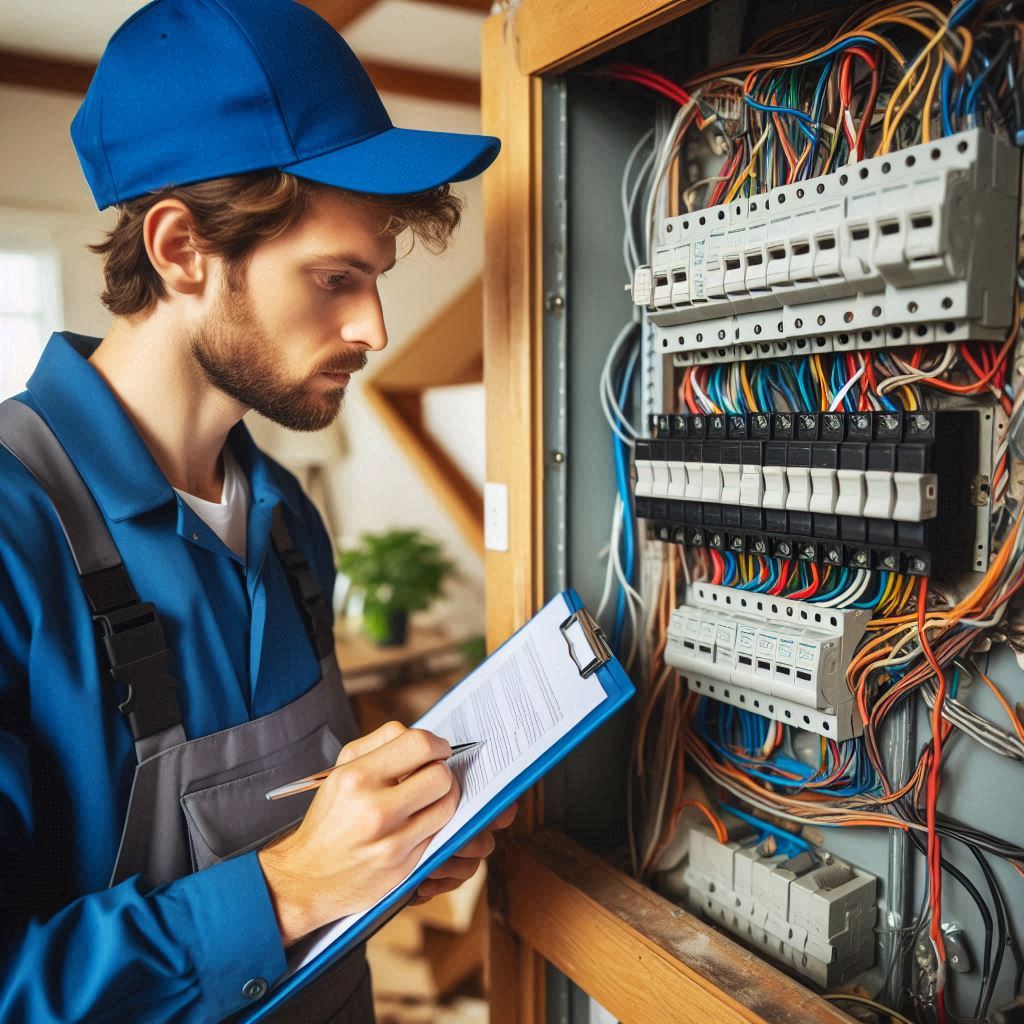Concealed Dangers: Revealing Risks through Electrical Inspections

The safety of electricity is a crucial aspect of home and commercial maintenance that commonly goes unnoticed. Many people do not recognize the possible hazards lurking behind partitions and beneath surfaces until it's past the point of no return. This is where electrical inspections come into effect. These comprehensive assessments help reveal issues that could pose serious risks, such as fire hazards, electrical shock, or equipment failure. Understanding what an electrical inspection entails and why it is essential can shield lives and properties both.
From spotting common problems to ensuring compliance with safety standards, electrical inspections play a crucial role in keeping both residential and commercial properties safe. Whether Electrician Inspection Condition Reports Kirkcaldy Fife are a property owner, a new buyer, or a entrepreneur, staying informed about the significance of these inspections can help safeguard your investments and ensure the safety of everyone in your space. As we explore the ins and outs of electrical assessments, you'll discover how regular assessments can avert disasters and promote a safe, efficient, and energy-efficient environment.
Grasping Electrical Inspections
Electrical examinations are a critical element of domestic and business property care. They entail a detailed review of the electric systems, connections, and parts to ensure they satisfy security standards and regulations. The chief aim is to identify any potential hazards or compliance violations that could present dangers such as electrical fires or appliance failures. Frequent check-ups help maintain safe settings for residents and shield important investments.
The value of electric inspections cannot be overstated. They not only improve safety but also function a key role in improving power performance. By identifying inefficient or faulty infrastructures, inspections can lead to enhancements that boost the overall power performance of a property. This anticipatory approach often leads to lower energy expenses and a lowered environmental effect, which is beneficial for both property owners and companies.
For homeowners, grasping the electrical assessment procedure is essential. During an examination, a qualified professional reviews the status of all electrical systems, from power panels to outlets. They examine for any indicators of wear or damage and evaluate compliance with the latest power codes. Knowing what to anticipate can reduce concerns and ensure that necessary repairs are promptly handled, ultimately safeguarding both the property and its inhabitants.
Common Issues and Hazards
During electrical inspections, several typical concerns can be noted that pose risks to safety and functionality. One of the most common problems is obsolete wiring, which can lead to electrical shorts and flames due to electrical issues. Aged properties often have wiring that does not meet updated wiring regulations or is made from materials that have deteriorated over time. Additionally, poor grounding and connections can expose a property to shock hazards and increase the likelihood of equipment damage.
Another significant issue is overloaded circuits, which can result from an surge of electronics plugged into a single outlet or circuit. This issue is particularly widespread in older homes where the power systems were designed for a lesser load. Inspectors often find misuse of extension cords and power strips, which, although useful, can contribute to excessive heat and fires if not watched properly.
Improper installation of electrical parts is also a key finding during inspections. This includes insecure wiring, lacking protective plates, and faulty outlets or switches. Such problems can not only lead to safety hazards but can also affect the dependability of electrical networks in a home or construction. Resolving these frequent problems through routine evaluations is vital to preserving a safe and effective electrical environment.
The Importance of Frequent Inspections

Regular electrical evaluations are vital for maintaining the protection and efficiency of all property. As time goes on, damage can lead to issues that may not be easily visible to residents or entrepreneurs. Inspections help identify possible dangers, such as faulty wiring, excessively loaded circuits, and outdated electrical systems that could pose fire hazards. By tackling these concerns proactively, property owners can dramatically reduce the chances of electrical failures and guarantee the well-being of their inhabitants.
Furthermore, routine inspections play a important role in conformance with municipal standards and regulations. Many areas require electrical inspections to satisfy safety standards, especially in antique properties or following significant renovations. By arranging routine checks, homeowners and landlords show due diligence in maintaining safe living spaces. This compliance not only protects residents but also helps prevent legal complications and penalties related to regulatory breaches.
In addition to this to safety and adherence, frequent electrical evaluations contribute to the overall performance and longevity of electrical systems. Finding and rectifying issues can lead to decreased energy bills and improved performance of electrical devices. Homeowners and businesses that prioritize these inspections successfully safeguard their holdings, boost the equity of their properties, and enjoy comfort knowing their electrical systems are in excellent condition.
